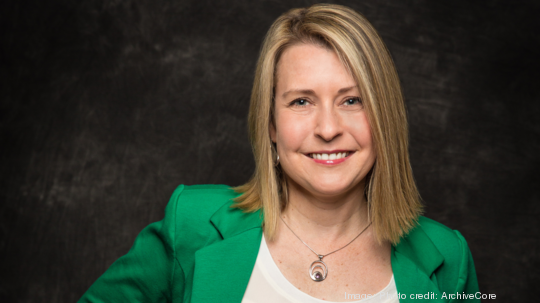
For healthcare professionals, the journey from “you’re hired!” to the first day on the job is often a long one.
Before a physician can peruse a patient’s chart or prescribe a medication, they first have to go through credentialing, a detailed background check to verify their training, education, board certifications and other qualifications.
That takes time. Typically, it’s 90 to 120 days of emailing, faxing, making calls and confirming records, said Lennox McNeary, a Roanoke, Va.-based physician.
“The places that train us own the information,” she said. “There’s really no consistency in how those documents are stored or managed.”
In the healthcare industry, that time is money.
“Every day that a physician is sitting idle because of clerical delays, it’s about $7-10,000 dollars,” McNeary said.
She added: “That adds up really fast.”
For McNeary, a physical medicine and rehabilitation physician who served as medical director of an inpatient rehabilitation unit, fixing the credentialing process has become a new calling.
Together with fellow physician Keel Coleman, she founded ArchiveCore, credentialing software that uses distributed ledger, or blockchain, technology to manage and verify primary source documents, significantly reducing the time required to credential a new hire.
It also saves healthcare systems money, McNeary said. Carilion Clinic, based in Roanoke, performed a case study using ArchiveCore in parallel with their typical process for 17 residents. The study showed that if they had just credentialed the new hires using ArchiveCore, they would have saved $1.2 million in lost revenue, McNeary said.
Now, Carilion is using ArchiveCore, and McNeary’s team is in discussions with another interested hospital.
As she works closely with the ArchiveCore end users, McNeary said her focus has been on understanding their workflows and designing an intuitive product.
“We want it to be something that they get excited about using and not something that seems like one more thing to do,” said McNeary, who has been ArchiveCore’s full-time COO since July.
ArchiveCore was accepted into the Lighthouse Labs fall 2020 cohort, an experience that McNeary called “unbelievable” and credited with supporting the startup’s recent growth.
More growth is ahead, as ArchiveCore plans to raise a $250,000 round of funding early this year. McNeary is also eying the July graduation date for medical residents. Her goal is to have multiple Virginia healthcare facilities on board with ArchiveCore by then to facilitate the hiring process. From there, the plan is to expand beyond Virginia.
One side effect of the pandemic, in addition to highlighting the need to hire healthcare professionals quickly, is an openness to trying new things and finding ways to save money, McNeary said.
“Hospitals, I think, are more eager to innovate now, and have got more methods in place to innovate partly because of Covid,” she said.